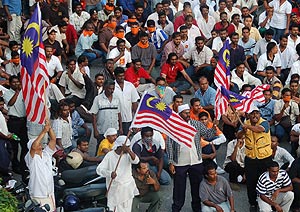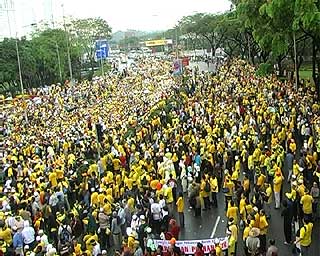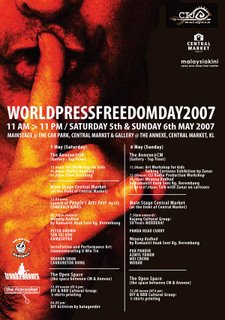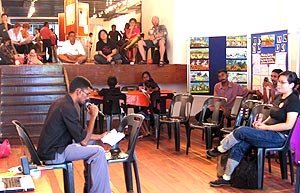 The Malaysian mainstream media, long shackled by repressive laws and their political masters, recently outdid themselves in toeing the official line by painting a dangerously lopsided picture of two rallies in the Kuala Lumpur capital that happened within weeks of each other.
The Malaysian mainstream media, long shackled by repressive laws and their political masters, recently outdid themselves in toeing the official line by painting a dangerously lopsided picture of two rallies in the Kuala Lumpur capital that happened within weeks of each other.
That thousands joined both rallies, in a nation that has been conditioned to shun street protests as violent, was an obvious cry for attention to their causes.
 But you wouldn’t know what they really had to say, or what really happened at the rallies, if you were to solely read New Straits Times and The Star, as revealed in content analyses by Aliran, a human rights NGO based in the northern island of Penang. See: Hindraf rally: Mainstream media deny stark reality at their own peril, Mainstream media demonising Bersih demonstrator and Bersih rally: The demonisation continue.
But you wouldn’t know what they really had to say, or what really happened at the rallies, if you were to solely read New Straits Times and The Star, as revealed in content analyses by Aliran, a human rights NGO based in the northern island of Penang. See: Hindraf rally: Mainstream media deny stark reality at their own peril, Mainstream media demonising Bersih demonstrator and Bersih rally: The demonisation continue.
(Pictures courtesy of Malaysiakini)



 Posted by Admin
Posted by Admin 


You must be logged in to post a comment.